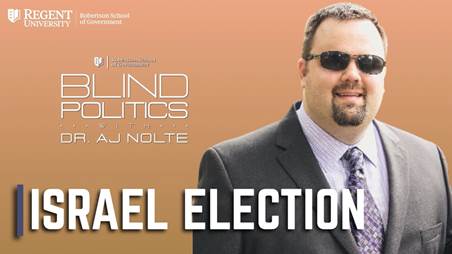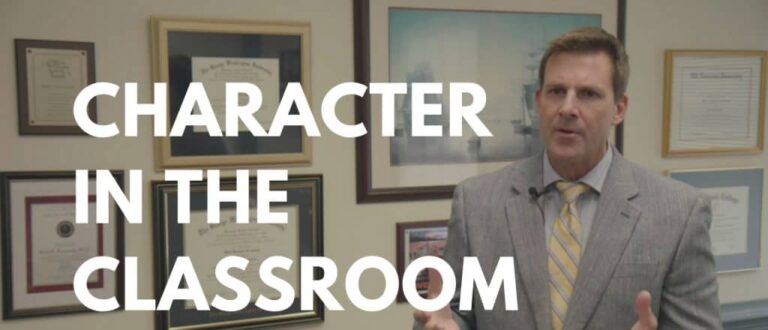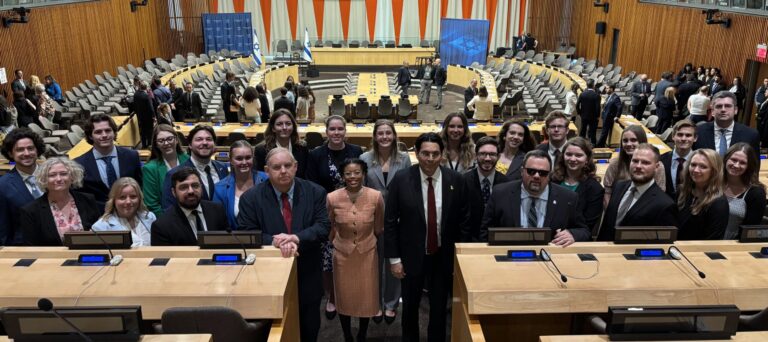The Psychological Absurdity of Communism
Editor's Note: The views and opinions expressed in this article are those of the author and do not necessarily reflect the official policy or position of Regent University, its faculty, administration, or affiliates.
Abstract
Many people are attracted to the purported egalitarian promises of communism to redistribute wealth and provide stability for the masses. Although never successful in practice, it seems to be an ideology that is well-structured and well-intentioned. This essay aims to evaluate whether the theory of socialism is conducive to human flourishing, namely from a psychological perspective. It argues that socialism will never and can never actualize flourishing because it removes worker autonomy, market incentives, and private property. The removal of worker autonomy, necessary psychological needs for motivation, and market incentivizes mitigates efficient quality production of goods and services and innovation. A lack of private property results in a degradation of resources from improper stewardship. The essay arrives at the conclusion that the theory of communism is detrimental, dangerous, and is not to be desired.
The Psychological Absurdity of Communism
I have heard the claim that communism is good in theory but does not work practically. Both historyi and lived human experienceii bear witness that communism is ineffective in implementation, but is its ideology advantageous for the flourishing of its constituents? Communismiii combines the abolition of private property and government control over all facets of economic production (Pruitt, 2019, para. 8). Conversely, capitalism is a free market system in which there is private property and economic production and consumption driven by choice. Humans are incapable of flourishing without private property and economic freedom. Many respected scholars have provided insightful critiquesiv of communism, but this essay aims to investigate the injurious psychological effects of communism on our motivation to produce goods efficiently, creatively, and to properly steward resources.
Communism is detrimental to worker efficacy and human innovation because it is coerced labor that removes worker autonomy. Deci and Ryan (2012), renowned motivational psychologists, have created self-determination theory (SDT) to describe the psychological underpinnings of human motivation. SDT does not describe motivation in terms of amount (i.e., how can I get someone more motivated) but differentiates between autonomous and controlled motivation. To be autonomously motivated, one must exhibit willing volition to participate in the activity and deem it important, whereas controlled motivation is the result of coercion or obligation. Both motivate, albeit with different results. Research reveals autonomous motivation leads to better performance, psychological health, physical health, engagement, excitement, and persistence in comparison to controlled motivation. Furthermore, Deci and Ryan (2012) disclose three basic psychological needs for optimal wellness and performance. These are competence- the feeling of confidence and effectiveness during a task; – relatedness- being cared for by others;- and autonomy- choice to engage in the behavior.
Communism employs controlled motivation because all economic activity is directed by the government instead of the worker. It audaciously argues that the government is more attuned to what the person needs than the person himselfv and therefore provides no latitude for work that is autonomously motivated (e.g., entrepreneurial activity). Nicolae (2017) offers a poignant assessment: – “Communism cannot be separated from oppression; in fact, it depends on it…Personal autonomy is non-existent. Human beings are simply cogs in a machine tasked with producing utopia; they have no value of their own” (para. 10). Competence, relatedness, and autonomy are mere illusions within communism. Stated differently, communism strips humans of the three basic psychological needs necessary for optimal wellness, performance, and creativity in a work environment. This means workers do not produce goods and services efficiently or efficaciously. Innovation lacks because autonomous motivation, hope for economic mobility (incentive), earned profit and property, and psychological needs are absent. This autonomic oppression is one main reason communist countries cannot feed their people,vi are bound the shackles of poverty,vii are not politically freeviii, and do not progressix. This just in, coercion does not actualize flourishing.
No private property is particularly problematic given our psychological design. It is helpful to illustrate this concept with Darley and Latane’s (1968) Bystander Effect. The Bystander Effect is a principle of human behavior that posits the greater number of individuals present, the less likely it is for someone to help a person in an emergency because of the diffusion of responsibility. When only one person is present, there is a much greater chance that person will help another in distress because they must assume total responsibility for the other. Think of this phenomenon in economic terms. With communal property, there is the same diffusion of responsibility and the resource is improperly stewarded. When one person owns property, they assume personal responsibility and are more likely to properly steward their resource.
Garret Hardin (1968) named this diffusion of responsibility The Tragedy of the Commons and elucidates with a perceptive analogy of cattle grazing in a communal field. When Farmer Joe brings his cattle to graze in a communal field, he does not restrict where his cattle graze or the amount of grass they consume because he desires for his cattle to satiate their hunger before other famers use this resource. The problem is that Farmer Bob does the same thing and so does Farmer Sherry. When Farmer Al finally arrives at the field to feed his cattle, there is no more grass left. The resource is depleted, degraded, and improperly stewarded because the impetus for stewardship is lacking. If each farmer privately owned a field and wanted to preserve part of it, they would restrict their cattle from grazing there and the grass would be preserved.
Communism’s lack of private property fails to account for the human proclivity to pursue their self-interest which means “they desire to better their condition” (Wehner and Brooks, 2010, p. 6). This tendency is not inherently destructivex, but it must be channeled correctly. As explained earlier, the farmers that pursued their self-interest in grazing their cattle ultimately engaged in a mutually destructive act. Some of the farmers’ cattle got to eat, but the resource became depleted so no future cattle could graze. However, when humans pursue their self-interest in a capitalistic environment, economic flourishing ensues. This phenomenon has been labeled the Invisible Hand by free market champion Adam Smith (1937) and occurs because people serve one another as they pursue their own goodxi. A worker makes money as they meet the needs of their client. This marked difference is the result of two foundational aspects, the ability to own private property and engage in voluntary, mutually wealth-generating associations (economic freedom), that characterize capitalism and are absent in communism.
Moreover, capitalism fosters excellence in production, innovation, and stewardship via its congruence with our psychological needs and human nature. The beauty of capitalism is that it facilitates autonomously motivated economic action and basic incentives to drive more a more efficient and innovative production of goods and services. Sowell (2014) states, “the hope for profits and threats for losses is what forces a business owner in a capitalist economy to produce at the lowest cost and sell what the customers are most willing to pay for” (p. 111). Without these pressures there “is far less incentive to be as efficient as possible under given conditions, much less keep up with changing conditions and respond to them quickly” (p. 111). Autonomously motivated people who experience market incentives produce well, innovate to outperform competition, and engage in mutually voluntary exchanges in the pursuit of self-interest.xii Almost invariably, humans are incentivized to steward their property well because they assume personal responsibility and need not worry that the government will take it from them.
There are strong biblical underpinnings for the creativity fostered in capitalism and stewardship found in the Cultural Mandatexiii. This first declares that humans are fashioned in the Imago Dei, – Image of God, and then discloses the duties of mankind and expectations for how we are to interact with the environment. Creativity and excellence in production enables humans to fulfill the Cultural Mandate which instructs humans “to work with the things God has made, ruling over, clarifying, reshaping, developing, and unfolding the potential we have been given” (p. 85). Note the close connection between being a divine image-bearer and having a creative prowess. Lindsley (2017) continues, “God is the king, but we are the vice regents. He is creator, but human beings are sub-creators” (p. 85). Additionally, there is an intimate relationship between the dignity of humanity, freedom (autonomous motivation), and creativity. The biblical warrant for a limited governmentxiv reflects Lindsley’s (2017) observation, “We need to be free to develop new creative products, new businesses, new forms of expression. Where there is heavy-handed government, this creativity wanes” (p. 86). Moreover, proper stewardship of private propertyxv is congruent with the cultural Mandate and realizes the care and betterment of resources we are entrusted withxvi.
Communism’s redistribution of wealth, abolition of private property, and economic control are quite an alluring vision to the general populous because of the equality and stability it promises. Although communism masquerades as justice, it is the worst kind of inverted egalitarianism. The communistic state engages in a Nietzschean subjugation and debases the dignity of its people by depriving them of the necessary psychological needs, autonomous motivation, and market incentives that permit efficient production with good quality. It disincentivizes humans to innovate and steward resources well and is incompatible with our responsibilities as image bearers of God. Communism is not equality for the people, but power for the state. It ensures a lack of quality resources, innovation, a country in ruin, and poverty for constituents politically and economically strangled by an all-powerful government. It is not flourishing, but oppressive. Capitalism is by no means a perfect systemxvii, but the theory of communism is fundamentally nonviable. It is psychological absurdityxviii.
References
Asmus, B., & Grudem, W. (2013). The Poverty of Nations: a sustainable solution. Crossway.
Deci, E. L., & Ryan, R. M. (2012). Self-determination Theory.
Dowd, A. (2018, February 6). Why Flourishing Happens Best in a Free Market. Retrieved December 5, 2020, from https://tifwe.org/human-flourishing-free-market/
Hardin, G. (1968). The Tragedy of the Commons. science, 162(3859), 1243-1248.
Hayek, F. A. (2014). The Road to Serfdom: Text and documents: The definitive edition. Routledge.
Latane, B., & Darley, J. M. (1968). Group inhibition of Bystander Intervention in emergencies. Journal of personality and social psychology, 10(3), 215.
Lindsley, A. (2017). Counting the Cost: Christian Perspectives on Capitalism. ACU Press.
Nicolae, L. (2017, November 20). 100 Years. 100 Million Lives. Think Twice. Retrieved May 12, 2020, from https://www.thecrimson.com/article/2017/11/20/nicolae-one-hundred-million/
Pruitt, S. (2019, October 22). How are Socialism and Communism Different? Retrieved May 12, 2020, from https://www.history.com/news/socialism-communism-differences
Schwarzwalder Jr, R. F. (2019). MARX’S NEW RELIGION. Journal of the Evangelical Theological Society, 62(4), 775-788.
Smith, A. (1937). The Wealth of Nations [1776].
Sowell, T. (2004). Basic Economics.
Wehner, P., & Brooks, A. C. (2010). Wealth and Justice: The Morality of Democratic Capitalism. Government Institutes.
Footnotes
i Pruitt (2019) informs no state has ever “achieved the elimination of personal property, money, or class systems that the communist ideology requires. Likewise, no country in history has achieved a state of pure socialism” (paras. 14-15). Communism and socialism have never fully been successfully achieved.
ii Nicolae, (2017) a Harvard student, has a father who fled from an oppressive Romanian communism. She says, “Stalin’s secret police tortured traitors in secret prison by sticking needles under their fingernails or beating them till their bones broke. Lenin seized food from the poor…Many in my generation have blurred the reality of communism with the illusion of utopia. I never had that luxury. Growing up, my understanding of communism was personalized; I could see its lasting impact in the faces of my family members telling stories of the past. My perspective towards the ideology is radically different because I know the people who survived it; my relatives continue to wonder about their friends who did not” (paras. 9, 11).
iii I decided to address communism instead of socialism because Marx viewed socialism as a necessary precondition for the progression from capitalism to communism (Pruitt, 2019, para. 7). In other words, communism is the logical outgrowth of socialism. Private property is still permissible in socialism.
iv A couple astute appraisals of communism are Schwarzwalder’s (2019) brilliant anthropological evaluation of man’s materialism and Hayek’s (2014) keen insight into the deficiencies of central planning.
v Wehner and Brooks (2010) expound, “There is also within communism a presumption of the state’s omnicompetence over all human behavior; because communism grants the state control over economic behavior, it is an easy an almost logical leap for the state to then control all other human behavior, including the political and religious realms” (p. 18).
viDowd (2018) includes Mikhail Gorbachev’s reaction on watching the Soviet Union collapse, “I was ashamed for my country- perhaps the country with the richest resources on earth, and we couldn’t provide toothpaste for our people” (para. 4).
vii Grudem and Barry (2013) assert, “Except for a few oil-rich Middle Eastern nations, all nations with high per capita income have become wealthy through various forms of a free-market system” (p. 138). Communistic countries are not wealthy, but among the poorest.
viii Dowd (2018) provides research that nations with high level of economic freedom rate the highest on measures of political freedom and religious freedom.
ix With communism, there are less goods produced, less economic progress, and a subsequent lower quality of life. Sowell (2014) describes the result of India and China’s transition to elements of capitalism, “It has been estimated that 20 million people in India rose out of destitution in a decade. In China, the number of people living on a dollar or less fell from 374 million- one third of the country’s population in 1990- to 128 million by 2004, now just 10 percent of a growing population” (p. 6).
x In Counting the Cost, Lindsley (2017) rightly asserts “It is more on our self-interest to love our neighbor as ourselves and love God above all. It is in our interest to ask God to make us more holy” (p. 29).
xi Self-interest allows us to properly “love your neighbor as yourself” (Matthew 22:36-40, ESV). Wehner and Brooks (2010) highlight this, “self-interest- unlike selfishness- will often lead one to commit acts of altruism; rightly understood, it knows no man is an island, that we are part of a larger community, and what is good for others is also good for us” (p. 6-7). It is a beautiful, mutually advantageous concept that aligns with a proper Christian ontology: we are members of a body designed to give and receive from one another; our flourishing is inextricably bound to the flourishing of another member.
xii I am quick to add that economic competition mitigates dishonesty and gouging. No economic system can fundamentally transform human nature. (only faith in Jesus Christ can; Ephesians 2:1-10, Romans 8:9, 2 Corinthians 5:7) However, competition drives the free market; because people have choices, if a company rips them off, they retaliate with their pocketbook and do not buy from that business again. Furthermore, they will tell others about their negative experience. In this way, the fitness of a business for survival is contingent upon honesty and grounded in morality. Businesses are incentivized to be honest.
xiii The Cultural Mandate is found in Genesis 1:26-28.
xiv Lindsley (2017) imparts, “God has clearly approved of government as an authority. God choses to use government as a tool in order to uphold order, justice, and the rule of law…Yet, government is composed of individuals and is far from perfect. As a result, Scripture makes it clear that God has also placed limits and expectations on government” (p. 83). The state was never intended to usurp the role of God in acting as an all-powerful entity.
xv Exodus 20:15, “You shall not steal,” (ESV) is one of the 10 Commandments. One must own private property for it to be stolen.
xvi When humans follow God’s commands and live according to how He designed us, flourishing is the byproduct.
xvii Dowd (2018) says that even though capitalism is imperfect, “a system that allows individuals to develop and use their talents, even if they fail, is better than a system that constrains or prevents individuals from even trying to use their talents in an effort to preemptively level the playing field” (para. 15).
xviii This paper is not a mere theoretical rambling. It is a reality for those who live under a communist state. Communism is antithetical to flourishing and its practices are violent. There have been an estimated 65 million deaths under Mao in China, 20 million of Russians under Stalin and Lenin, and almost 2 million Cambodians under the Pol Pot regime (Wehner and Brooks, 2010, p. 19). Advocates of communism do not properly understand its ideological ramifications or are apathetic to its horrors.
The views and opinions expressed in this post are those of the authors and do not necessarily reflect the official policy or position of Regent University.





